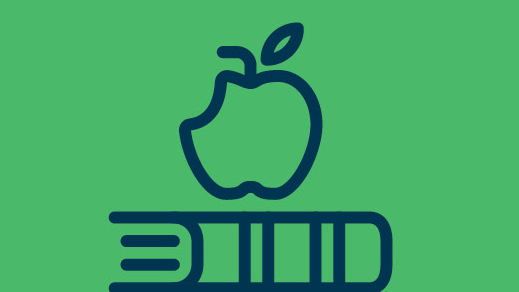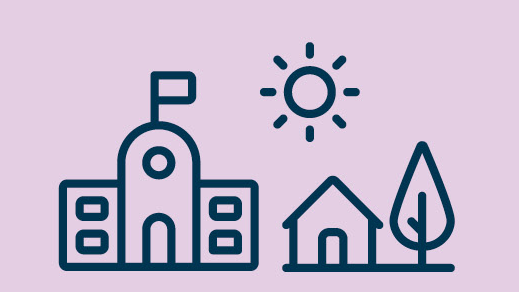
Our 2023 Highlights
As we bid farewell to 2023, let’s take a moment to reminisce on a year marked with growth and positive influence in the DCU Changemaker Schools Network. Our commitment to fostering positive change has never been stronger, and this year has been a testament to that ambition.
We are thrilled to share that we successfully welcomed 10 new schools to the network and we now have substantial research findings, showcasing the tangible outcomes of our work. This progress not only validates our commitment to positive change, but also plays a critical role in supporting our children as active and empowered citizens or changemakers. Together, we are making a significant difference, and the year ahead holds even more promise for our continued growth and impact.
Thank you for your wonderful engagement and belief in the network, we are looking forward to working with you all this year and seeing you both in DCU and in your schools.
The DCU Changemaker Schools Team
Our Changemaker Schools
What is a Changemaker?
In 2023 we grew significantly bringing new schools to the network with new ideas and innovations in the area of STEM education, children's voice, creativity, inclusion and equality.
We now have 13 DEIS schools, 3 Special Schools, 2 Educate Together Schools, I Community National School and 1 Gaelscoil.
6 of the schools are small rural schools, 6 are town schools and 16 are urban schools
Bunscoil Loreto
Faughart CNS
Gaelscoil Ghráinne Mhaol
Michael’s House SNS
Portlaw N.S.
Rathcoole ETNS
Scoil Chiaráin C.B.S
St Mary's N.S.
St. Clare's N.S.
St. Patrick’s Boys N.S.
DCU Changemaker Schools Network Conference 2023 - Children’s Citizenship, Rights and Participation
In December 2023, we successfully convened our second conference in the DCU Institute of Education (DCU IoE) delving into the crucial themes of children’s citizenship, rights, and participation. Facilitated by an expert panel of 14 children from our network of schools, the event featured a keynote address by Harry Shier, acclaimed author of ‘Pathways to Participation: Openings, Opportunities and Obligations.
Harry engaged the participants in an insightful discussion on the pathways to participation model and conducted an interactive workshop alongside a panel of expert children.
The conference encouraged attendees to explore practical solutions to challenges.
Throughout the conference, the expert panel actively deliberated on identifying the most effective ways to amplify the voice of the child in their schools.
It was a really great day, and we appreciate all of your engagement and thank you for bringing the beautiful art.
St Ultan’s Primary School
St Ultans Primary School is a large DEIS Band 1 school in Dublin. Nestled within a vibrant campus, it offers an integrated Education and Care service catering to the Cherry Orchard community. Complementing this are Early Education & Nursery and Care Services, welcoming children as young as 3 months old.
At St Ultan’s every student benefit from a minimum of 30 minutes free music education per week, through the innovative Presto music project. Inspired by El Sistema, this programme introduces students to various instruments including the violin, double bass, viola, classical guitars, and percussion.
St. Ultan’s is an integrated care and education model. This means that in addition to providing children with primary and early years education, they also put in place all of the necessary supports that are necessary for the child to succeed in later life.
- The following features ensure that St Ultan’s is a model of good practice to address disadvantages early on in a child’s life.
- The Integrated Care and Education Model (ICE) is a way of being, it is an approach to supporting the whole child and family. The following distinctive features characterise the St. Ultan’s approach:
- Integrated: this means that the early childhood education and care is offered alongside primary education, family supports and therapeutic services. The two Boards of Management share responsibilities for governance across the entire Campus. There is strong and purposeful co-operation between Early Education practitioners and Primary School teachers, creating a smoother and more school-ready transition for children from early years to primary school.
- Open: this means that the Campus is open spatially and energetically to the entire community, using the premises in a way that the Programme for Government urges.
- Holistic: this means that the whole child and family is considered and provided for within the model of service. The needs of the individual child are identified, assessed and responded to; these include their physical wellbeing, mental wellbeing, educational, social and economic development. The child is the microcosm of the greater Cherry Orchard community and beyond.
- Developmental: this means that attention is on the development of the whole child and his/her family and the wider community.
- Wrap around: this means that the child and his/her family experience wrap around care across all domains and on one safe site.
- Personalised: this means that the development of each child is anticipated and receives attention through a personalised ICE Plan.
- Safe: this means that the Campus space is safe and welcoming to all children and families, it is caring and stable for those who may experience difficulties coming into a school or care environment.
- Therapeutic: this means that St. Ultan’s provides therapeutic supports to all children including those experiencing ASD, e.g. speech and language therapy, play therapy and counselling. Therapies are also offered to parents and guardians.
- Nourishing: this means that children receive at least one nutritious meal each day on Campus prepared and delivered from our kitchen, efficiently and safely.
- Family oriented: this means that there is provision of supports to parents/guardians and family members, including life-long learning and sign-posting to other relevant services within the community.
- Preventative: this means that all the work on Campus is immediate and responsive to the needs of children and families. It is St. Ultan’s early intervention which has the power to break the cycle of disadvantage and to prevent further generational disadvantage that is likely to occur in the absence of its services and supports. An investment now in St. Ultan’s will help to reduce the long-term cost of chronic and enduring unemployment, addiction, anti-social behaviour and juvenile and adult crime.
- Community focused: this means that all members of the community are welcome on Campus and it provides local employment opportunities and a sense of belonging and support for local people
This school is a very exciting and interesting school in terms of the work they whole campus is doing to address educational disadvantage. We are looking forward to visiting this school on April 24th.
School Feature: St Columba’s Girl’s National School with Facility for Deaf Children
Situated on a five-acre campus in Cork city, St Columba’s Girls National School with Facility for Deaf Children comprises both a mainstream school for girls and a facility for hearing impaired boys and girls. There are three languages taught in the school English, Irish and Irish Sign Language (ISL), fostering a culture of innovation and inclusivity.
Notably progressive, the school is dedicated to addressing climate issues through various initiatives. The school has a hillside garden, a woodland area, a bog garden, a vegetable garden, and native hedgerows. One particularly unique facet is the presence of a secret garden hidden within the school. The bog garden serves as a sanctuary for wildlife. Teeming with frogs, mini-beasts, bugs, a wildflower area, native bog iris, and hedges, it exemplifies the school’s commitment to climate justice.
As well as gaining many awards from Cork Schools’ Garden competition run by Muintir na Tíre, St. Columba’s has recently built an incredible hand crafted 10 metre diameter Geodesic Dome. This dome provides the perfect environment for growing plants and vegetables throughout the school year. The children love being out in the geodome. It is a sensory space where they can learn in a hands-on environment, interact with plants and nature, improve concentration and relieve anxiety. Every class has a dedicated growing area in the dome. The very active Farmers’ Club hold regular Farmers’ Markets selling their produce. The school was delighted to welcome fellow Changemaker School Ballymoney NS to one of the Farmers’ Markets last June. Pumpkins from the school were grown on in Ballymoney to the delight of both schools.
Over the past few years St. Columba’s has been working with Green Spaces for Health in Cork on a special project where the children have collected acorns from our oak trees in the school woodland and have grown them into saplings to be planted out in Cork City and County when they are ready. To date the school has registered 99 Broadleaf trees with the EU Green Deal # 3 Billion Trees 2030. This initiative aims to re-green Europe. All of these trees have been grown and cared for by the children. The school is working with people across the EU to combat climate change, highlight health and wellbeing and encourage nature and biodiversity.
The senior students are involved in an eTwinning Programme with schools in Ireland, Greece, Italy, Romania and Spain. This year’s theme is “Sharing our Art Stories”. The project uses art in all its forms to explore both local and wider European culture and heritage from the cave paintings of Lascaux in France to modern digital and performance art. The children are invited to investigate artists from all around Europe and how they use their work to express their ideas, feelings and opinions. They are then invited to create their own art in the classroom and to collaborate across the eTwinning platform to create unified art designs with children across Europe.
In 2023 St. Columba’s was awarded “Expert Citizen School Award in European Citizenship Education”. This was in recognition of the school’s involvement in “My Big Friendly Guide to the European Union” programme. This programme aims at developing awareness, knowledge and critical thinking at primary school level on the European Union and Ireland’s role within it. Highlights during the year are involvement in a pan-European quiz and Zoom meetings with European politicians such as Roberta Metsola, President of the European Parliament with whom the children enjoyed a question and answer session last year. Some of our teachers have been awarded “Star European Teachers” and even went on a study trip to Brussels to visit the European Parliament with a group of primary and secondary teachers led by the Dr. Emmanuelle Schon Quinliven, Director of the Hub in Active European Citizenship. Our children take part in Europe Day celebrations each year with other schools across Ireland and the EU.
The Creative Committee is holding a Creative Week in the last week of February where they plan to “Yarn Bomb” trees in the school grounds with highly colourful knitted scarves. Children, teachers and SNAs have been beavering away for the past month ready to explode colour all over the school campus. This year the Creative Committee is focusing on listening to the children’s voices. The Senior Classes are creating a gallery of “I hear you” focusing on the rights of the children.
Children are working with artists doing workshops in The Gluksman gallery on printmaking and sculpture inspired by ancient bog oak which will go on display in the gallery in March 2024. The school is delighted to have on loan from the gallery two pieces of art, “Creativity and Play “by Niamh Sharky and “Justice and the Right to be Heard '' by Peter Donnelly. This initiative from The Gluksman makes artwork available to schools and encourages children to express themselves through art to explore and create worlds bigger than themselves.
Some children had a very busy first term with their Design for Change project where they combated plastic pollution in their Christmas Toy Recycle Day. Children exchanged unwanted toys for a ticket which enabled them to choose a new toy.
The Circular Economy is alive and well in St. Columba’s.
All throughout the school from First to Sixth Class we are taking on Junior Achievement Projects in the next few weeks. These programmes inspire students to gain a deeper understanding of the opportunities their education provides and to inspire them to try their best in school. Volunteers come to the school from local industries, many are past pupils’ .They help the children make connections between what they are doing in school and maybe a job they can do when they are older.
Our incredible school choir have been delighting everyone this year, singing at the official opening of our Geodesic Dome they caught the attention of our Lord Mayor who invited them to sing at the turning on of the Christmas Lights in Cork City. The choir also sang with our past pupil mezzo-soprano Niamh O’Sullivan who has promised a master class as soon as her schedule allows.
The children in our Deaf Classes can start their experience of St. Columba’s at three years of age where language and communication skills are taught. Every class has a Phonak Digimaster which provides amplified sound, aided by FM systems connected to microphones beamed straight to the children’s receivers. Augmentative Communicative Systems are all over the school to aid the hearing of all.
The Deaf Classes’ are currently working with local poet Colm Scully with a view to entering local poetry festivals with their own poetry interpreted in ISL as a performance art form. They are also entering a Deaf Team into a 5 a-side FAI Soccer Tournament. Local matches are underway at present with the Finals in The Aviva Stadium in June.
This year the Senior Deaf Classes moved from the Junior School and are now happily ensconced in our Senior School. Prior to this the Deaf Classes were nestled together in the Junior School. There is a bigger emphasis on class integration and Irish Sign Language is used by all from Morning Assembly to the end of the school day.
There are very close links to the Cork Deaf Association. Some of our teachers have been cajoled into entering their “Strictly Come Dancing” fundraising event organised by a past pupil Devon Hamilton.
The student council gives the students an opportunity to have a voice and represent their classmates. Students meet regularly to express and share ideas, interests and concerns. The students learn to negotiate, compromise and communicate ideas back to their classmates. Representatives, from second to sixth class are actively involved in advocating for student voice in the school community. As part of their role in the student council, pupils organise events, liaise with other stakeholders in the school, share thoughts and opinions and uphold the values and ethos of St. Columba’s Girls’ National School with Facility for Deaf Children.
So far this academic year, The Student Council has taken part in the ‘Shoe Box Appeal’ organised by the charity Team Hope. Team Hope’s Christmas Shoebox Appeal is an annual campaign that delivers gifts straight into the hands of children affected by poverty. Often these shoebox gifts are the only gift that a child will receive at Christmas and the joy that they bring is incredible. There were over one hundred shoe boxes donated on behalf the school and a total of 500 euro raised from our ‘Crazy Hair Day’ to fund the delivery of the boxes. The pupils are constantly sharing ideas provided in suggestion boxes.
The school was delighted to get our own school minibus this year so that pupils can go on educational and sports outings.
St. Columba’s GNS with Facility for Deaf Children is a vibrant educational campus. The children thrive and grow together in a safe and caring environment.
Important Dates
Feb 2024: CPD New Schools
Meet in Francis Street School
April 24th 2024: CPD all schools
Meet in St Ultans
Feb 2024: Cluster 1 Change Leaders
May 2024: Cluster 2 for Change Leaders
Looking to 2024
As we set our sights on the upcoming year, we are eagerly anticipating new developments. From forging new partnerships, conducting more groundbreaking research and realising our goal to reach 50 schools in the network; 2024 is marked by growth and vision.
Our commitment to develop the voice of the child, including their citizenship capacities by working as a professional learning community in the DCUIoE remains stronger than ever.
We are so thankful to our community for believing in one simple, yet powerful idea- that all children can be changemakers.
We are currently open for new school nominations, as always if you have a school in mind or would like to know more about the network reach out to us on fiona.collins@dcu.ie and check out our website
We are also hoping to develop the research capacities of our schools, and are delighted that two schools are engaging in PhD research. Should you wish to become involved in research we would be delighted to hear from you.
The DCU Changemaker Schools Team









